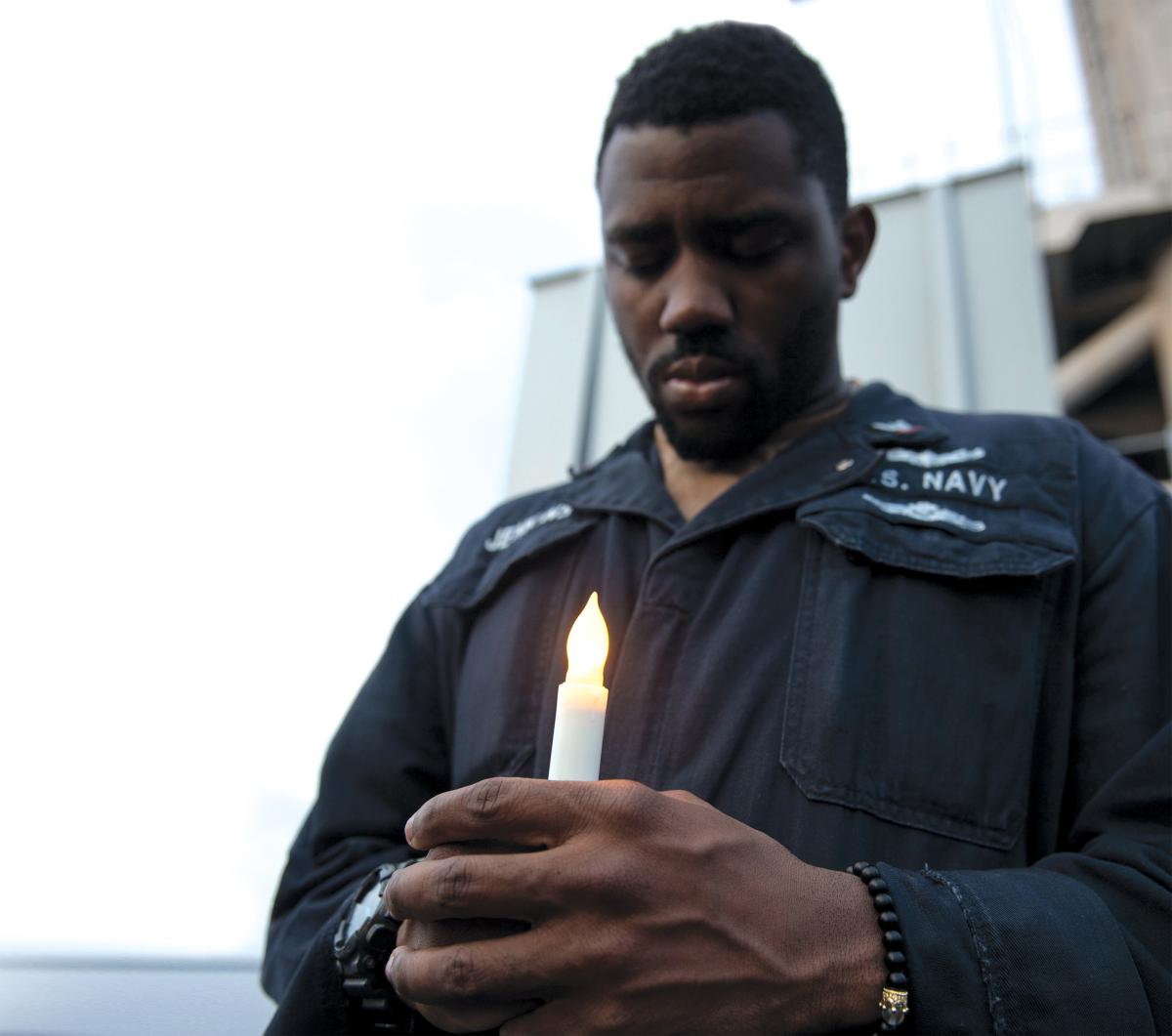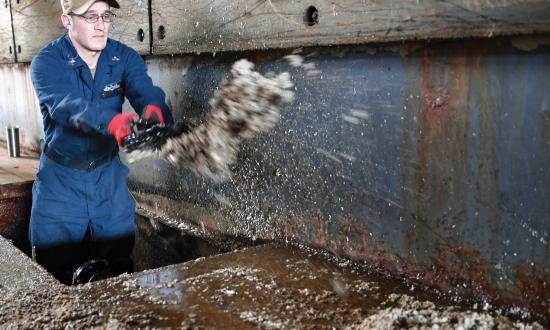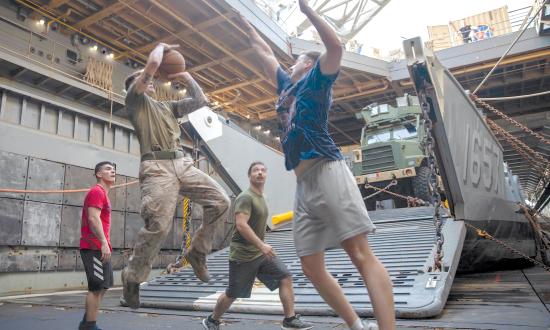I sat there in the makeshift study classroom on board the USS Gerald R. Ford (CVN-78). We had been told to muster up for accountability. As usual, friends grouped up, and there was laughter and camaraderie—talking about who messed up on watch and getting our jabs in with friendly banter. Unknown to us, one of our fellow sailors was lying at his home, dead from a self-inflicted gunshot wound. Inevitably, conversation started about why we were waiting for the reactor officer (RO) to come and talk with us. Soon, we put the pieces together and realized there was one person missing from our group.
“Attention on deck!” The presence of the RO, followed by the executive officer, commanding officer, and, finally, the chaplain all but confirmed our worries. “Shipmates,” the shakiness in his voice resonating with us, “We have lost a sailor. Petty Officer Connell took his life last night.” He said other things, I am sure of it. I saw his mouth moving but was unable to hear the rest of what he was saying. It was as if we all became brothers and sisters, friends, comrades . . . a rankless body of people embracing each other through this hardship.
Undermanned, Overworked
When I think about the same group of people now, before the news broke, I see sailors stressed out, sleep deprived, overworked, and generally discontented. I see underappreciated senior enlisted and officers alike attempting to motivate a desolate group of junior sailors with unrealistic goals and deadlines. I see downtrodden leaders who are overworked and overworking the junior personnel. I see a perfect storm that no longer makes it an “if” someone kills themselves, but a “when.” I see a life-changing experience for most junior personnel that is an all too common event throughout the fleet.
How do you tackle mental health in a climate of “suck it up buttercup” when the environment is always changing? The nuclear-trained machinist mate manning level on board Gerald R. Ford–class carriers is 40 percent smaller than that of the Nimitz class. The responsibility of a stringent qualification process, mandatory training, and maintenance, still apply. Nimitz-class carriers have approximately 250 mechanics in their reactor departments when almost fully manned. The reactor plant spaces on Gerald R. Ford–class carriers still require roughly the same amount of maintenance, the same amount of training, and the same qualification process—but with less manning.
The operational tempo is changing faster than most Navy leaders are willing to change. Instead of investing in quality of life, it is common to see the service grind people down until they break. Once they do, miraculously, a billet opens up because they get rerated or simply processed out. Broken. With manning issues beleaguering the fleet in mission-critical rates, the Navy must evaluate leadership quality. Leadership courses that train for the long-term effectiveness of the world’s greatest fleet are vital for the retention of quality, not quantity. The basic human needs of the career sailor need to be reevaluated. The Navy can no longer sell itself to recruits with the idea that “it’s all about the benefits,” when the benefits are evaporating and the quality of health care is substandard.
The next generation of sailors is in the fleet now, and the Navy cannot seem to understand why top-performing sailors are getting out. Most of the younger workforce in today’s society agree that they would take a pay cut if they knew their skills mattered and were having a positive impact on the world. So the challenge is, how does the Navy appeal to its top performers and ensure a healthy work environment, where budget cuts affect manning, pensions, and benefits?
Lead with Feeling
People in any work environment want the same things as they do in any relationship: appreciation, respect, and ownership. Leadership training must be revamped to reflect the current mind-set of the “21st-century sailor”—a program that develops leaders not only to see the bigger picture but also to be relatable to a generation of people, as soft as it sounds, who are more aligned with their feelings. The ability to identify human feelings in a workplace that stresses unity seems to be lacking in our Navy.
Leaders who see what makes a sailor unique to the work environment can capitalize on the value of the sailor. This invites creativity and hard work, and it allows leadership to be established and grow. A sailor who is valued will feel the appreciation and develop a “what I’m doing matters” mind-set.
Navy leaders need basic training in psychology and an open dialogue with health-care professionals on what makes a healthy work environment that balances the goals of the mission without sacrificing the sailors. The Navy’s current leadership programs would benefit greatly from having a psychologist teach effective leadership styles. With the material presented by fellow service members, there is no room for growth or recognition of the toxicity, and the cycle continues. Leaders lose touch with problems they once faced, and the results are devastating both at the fleetwide level in terms of manning, and also at a command level with the loss of life.







